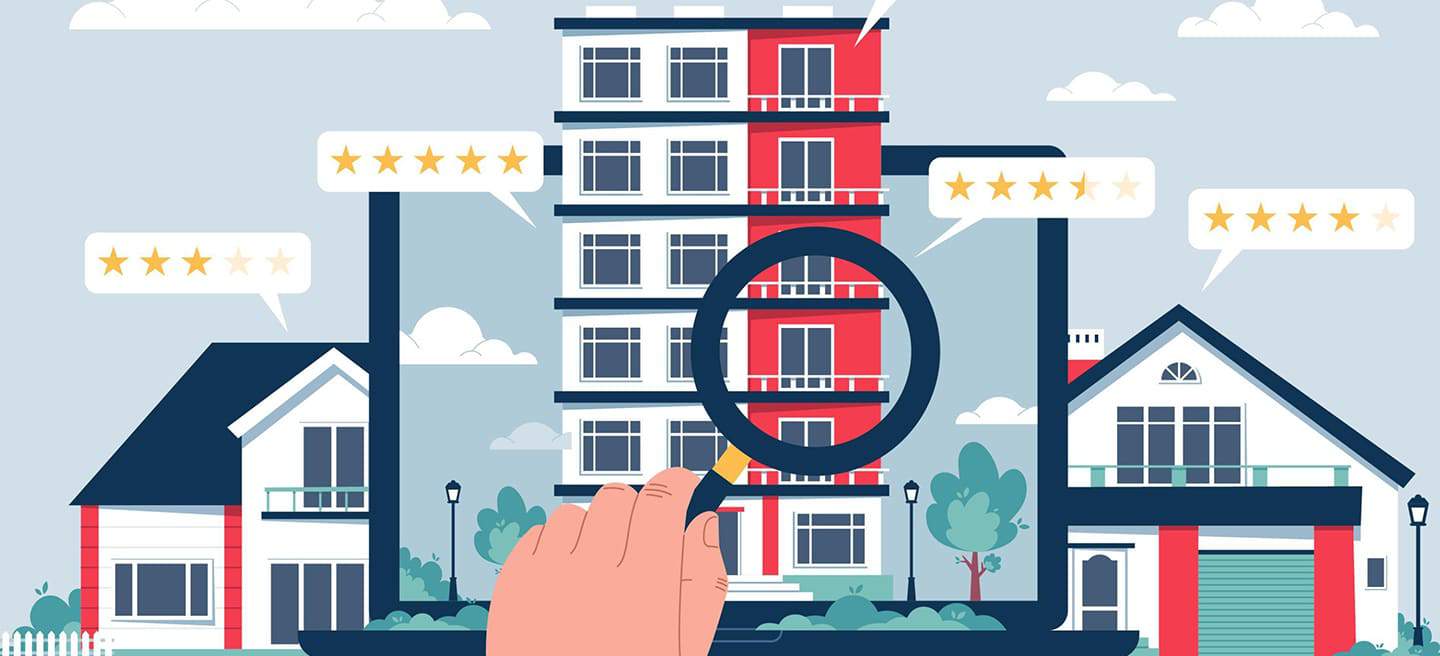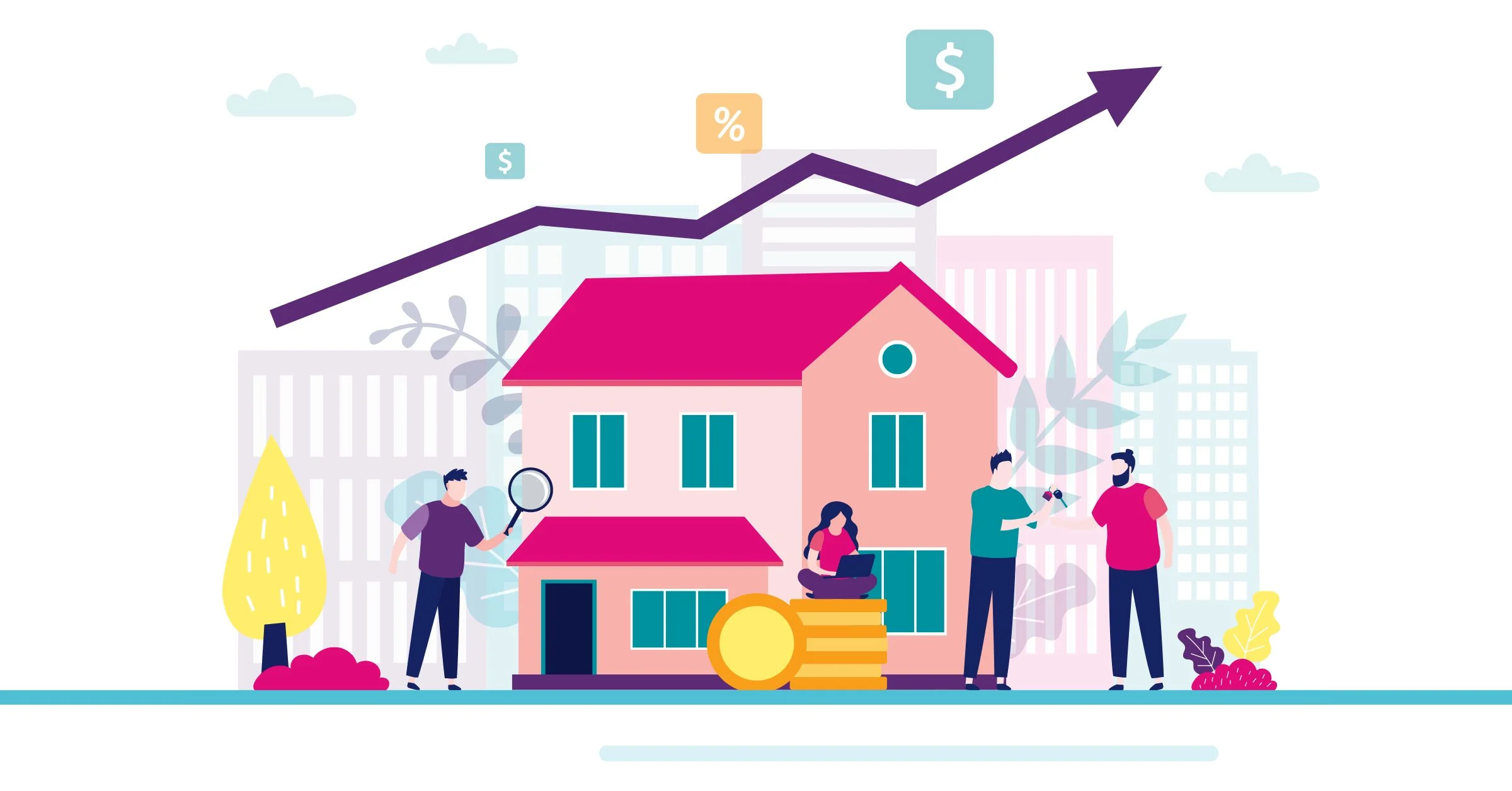Blockchain Technology in Real Estate
It took years for blockchain technology to get the recognition it deserves. Developed to offer a better alternative to the conventional financial system, it quietly incorporated itself into several industries, including real estate, and changed their modus operandi.
The technology’s capabilities and potential have disrupted how individuals and businesses invest, buy, or sell undeveloped land, residential properties, and commercial buildings. It has opened the door to horizons, offering new opportunities to build equity, generate passive income, and amass wealth.

What’s the Role of Blockchain in Real Estate
Before we discuss the impact of blockchain on real estate further, we want to introduce the industry’s current problems briefly.
Real Estate Problems Today
The industry is a massive indicator of the strength of a national economy. Governments and businesses closely monitor housing prices and sales as they can provide clues about the economic health of a country or region.
To fully understand the importance of the real sector on the local and international scene, it’s enough to look back at 2008 and see the effect that the burst of the United States housing bubble had on the global economy.
To avert another disastrous property bubble burst, the industry must considerably improve its transparency. It has to eliminate bad sales practices, promote better investment schemes, adopt sterner mortgage regulations, and control speculative derivatives trading on secondary markets.
Blockchain technology can help the sector overcome these obstacles. It can create a new, more secure, transparent ecosystem where real estate is acquired and sold seamlessly and with as little risk as possible.
Benefits of Deploying Blockchain in Real Estate
The technology can improve efficiency in the industry in several ways, such as:
- Minimising the Need for Intermediaries
Blockchain removes third parties from most of the processes related to purchasing, selling, or managing a property. For instance, the parties in a real estate transaction might not need to go through time-consuming, paper-based offline systems.
Through the technology, a buyer and seller can meet at the property, negotiate, and close a deal peer-to-peer using a smart contract. Similarly, payments don’t need to go through banks or other financial institutions. They can go directly from the purchaser to the vendor.
Eliminating intermediaries lowers costs and speeds up procedures. Information concerning rent, mortgage, legal disputes, and inspections can be recorded in real time and stored in the blockchain network.
- Real Estate Transaction Processing
Online payments and remittances were the first and most popular use cases for using blockchain in the real estate industry. The technology’s core strengths were proven to handle the vast amounts of money that change daily hands in residential and commercial property markets.
Blockchain’s trustless design permits direct transactions between involved parties. It removes the necessity of an overseeing organisation to verify and validate operations. The use of smart contracts further reinforces the procedure. These digital agreements ensure that a seller-buyer transaction is only executed when specific predefined conditions are met.
- Transparency and Data Accessibility
Transacting and governing residential or commercial rentals sometimes involves dealing with many stakeholders. It may include investors, lenders, agents, owners, tenants, and property managers. Interacting regularly with large numbers can be time-consuming, stressful, and exhausting.
With blockchain, all parties involved with a property can conduct transaction audits in real time. Everyone can access the network and check what payments have been made, what contracts have been signed, and what maintenance has been executed.
Blockchain members can use the recorded data to make important decisions and act in their best interests. For example, owners can develop a financial model based on occupancy, rents, and operating overhead. The technology’s immutable, decentralised, and encrypted nature improves data security and integrity, automatically boosting trust among all parties involved.
Using blockchain technology, real estate can be digitised and divided into multiple tokens, each representing an ownership stake. But why do it? Digitised properties can enhance liquidity in the industry, make investments more accessible, and improve transaction transparency.
Tokenisation also spreads upkeep expenses among the co-owners, making property maintenance and management more effortless. Each stakeholder’s contribution is determined by the shares they own. The same principle applies when the generated proceeds are distributed.
Blockchain is predicted to entirely transform how individuals and businesses invest in real estate. It’s expected to minimise, if not eliminate, geographic boundaries as people would be able to invest in any property they want regardless of their location.
Real-Life Cases of Successful Real Estate Tokenisation
The first real estate tokenisation occurred in 2018, and since then, several property digitisation projects have been successfully conducted
1. Polymath, a blockchain network developed for security tokens management, and Red Swan, a platform for investing in tokenised commercial real estate, have digitised over $2.2 billion in assets. They have issued tokens for different class properties in New York, California, Texas, and Ontario, Canada.
2. KlickOwn, in collaboration with Bitbond, listed a digital bond for the “Historisches Lüneburg” building in Lüneburg, Germany. Because of the less costly blockchain-based securitisation process, investors could acquire fractional ownership for only €10. They were able to raise €1.5 million in tokens and are anticipating to yield a yearly return of 5%.
3. In 2019, Smartlands became the first company to tokenise real estate in the United Kingdom, a student housing block in Nottingham. Since then, Smartlands has earned a solid reputation as a dependable, global blockchain-based platform for crowdfunding investments.
4. REINNO launched a marketplace for tokenised commercial properties in 2020. It included five offerings valued at over $237 million. The real estate was available to accredited investors worldwide, who could purchase fractional ownership using U.S. dollars or cryptocurrency.
It’s more than clear that the power of blockchain technology cannot be underestimated. If harnessed correctly, it can immensely benefit the real estate industry. It can solve existing problems, open new markets, and prevent catastrophic property bubble bursts. It can forever change how people buy, sell, or invest in real estate. It can democratise the sector and make it accessible to a broader range of people.
kirsan.co.uk


.png)











